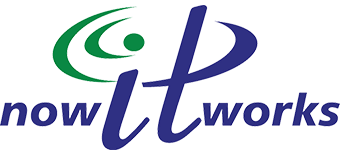- How does the buzzword, "data governance" apply to your small business?
- Learn about the 4 main parts of data governance
- Know how to ask the relevant questions for your SMB to develop policies
What is Data Governance?
Defined simply, data governance is the process of managing the availability, usability, integrity, and security of data based on a set of standards and policies that also regulate usage.
A data governance policy involves determining the kind of data to be acquired, how it will be stored, how it will be used, how it will be made available to users, and how it will be secured. For example, some data might be extremely sensitive so that great care will be taken to allow only very few persons to have access to it and to manipulate it. Other data can be more widely distributed to individuals or teams for their use in making operational decisions. In both cases, however, a company has strong interest in making sure that its data is reliable and logically related to the needs of the business.
Which Data Is Most Critical to Your Business?
Chances are that your company’s financial data and clients’ personal information are among the most critical data that you manage. But there might be other categories that are critical as well, including information about your business’s procedures, any proprietary products or documents, data pertaining to marketing efforts, etc.
Making a map of your data sets according to priority of importance and sensitivity is a good first step toward deciding how much attention you should give to data governance. If you have fewer than 50 employees, you can probably get by with less sophisticated data governance measures, but without neglecting it altogether. A good data map will identify
- Where your data comes from—a list of all your data sets and platforms from sales, finance, marketing, etc.
- Where your data goes—where it is stored and where it appears on platforms for your employees to use.
- Who uses which data—that is, whether there are any restrictions on who has access to the most critical data.
Availability of Data
Here you need to decide which data should be available when and to whom.
- Should all data be available quickly 24/7?
- How old should data be before you archive or delete it? Can/should you keep old data forever? If not, what should happen to it?
- Should you limit the persons on your team to whom some data sets are not available? How should you restrict availability of data only to those who need access to do their job? Who is in charge of making and enforcing your policy of availability?
If your company has made all or most data available to all employees, changing this policy could provoke backlash. Before changing access policies, you should explain the reasons for doing so and the advantages for your company.
Usability of Data
Whether your data is usable by your team depends on several factors.
- Which software applications do your team members use to access company data? MS Office 365? CRMs such as Salesforce, Zoho, or others?
- Do these applications integrate with tools used to access company data? For example, is your clients’ contact information stored in a format that allows easy use by your CRM? What do you do now to make this happen?
- Do your software applications integrate with one another? Does your team spend a lot of time exporting and importing data from one application to another?
Poor usability might hamper your team from accessing relevant data to guide their decisions or implementing appropriate procedures.
Integrity of Data
To reach the best data-driven decisions, you need to be sure that your data is complete, accurate, and reliable.
For instance, your sales team might be using data that is inaccurate or incomplete. If relevant fields are not filled in, your sales division might be unable to know when to move prospects into the “top prospects” category. Having a data governance policy that ensures accurate and complete data entry could to a long way toward preventing this problem.
How do you determine what is good quality data? And how do you make sure that your data is high quality? Good data governance helps to answer such questions.
Security of Data
Keeping your company’s data secure is a technology challenge and a policy matter.
Experts generally recommend storing company data in the cloud for better security, primarily because it builds in more redundancy and better recovery of data. To handle the technical side, you need in-house IT experts or the ability to outsource IT matters to a managed service provider. Data security on this level aims to protect company information from criminal intrusion.
Still, any technical approach to data security must also involve policies regarding access to data. Even small companies usually have good reason to restrict access to their most sensitive data to selected persons. A policy that establishes levels of access creates data security that is internal to company operations. The software that is used to maintain and access data should be able to accommodate level-of-access procedures.
What’s your next step?
If your business has an in-house team that is responsible for overseeing data collection, storage, and access, you can ask them to address the above questions and concerns. They can advise you on which policies and procedures might need to be changed to ensure the availability, usability, integrity, and security of your company’s data.
But if you have no one in-house who can handle such matters, you would do well to engage an IT managed service provider to help. At Now IT Works, our team is all about providing consulting advice and recommending the tools that will keep you running efficiently and securely. Contact us to get started on fashioning a data governance policy that fits your specific needs.

